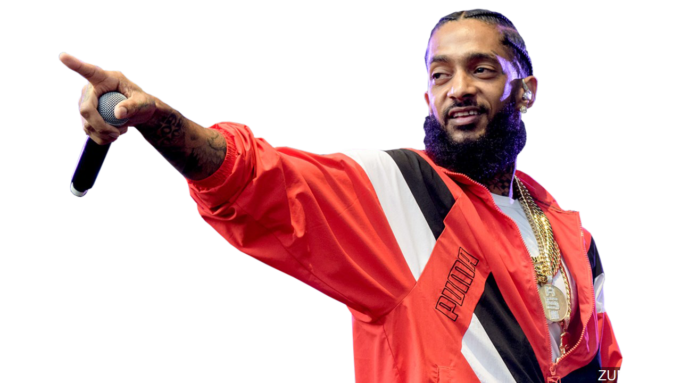by Naba’a Muhammad and Anisah Muhammad
After Nipsey Hussle’s death, 22-year-old Donovan Burton from San Antonio, Texas, started a Facebook group, Nipsey Hussle The Marathon Continue Group. The group, which is still active, now has over 46.6K members.
Mr. Burton, a recording artist under the name Don The God, said he believes Nipsey will live on, with the way he impacted this generation. He said to continue his legacy, artists should focus on the positive.
“Don’t worry about all the negative stuff. You have somebody that you don’t get along with, just make amends, because you don’t know when it’s going to be your last time. But always just focus on the good things,” he said. “Improve yourself. What can you do to make yourself a better person?”
He said one thing he wants people to do for Nipsey’s legacy is to keep pushing. “I just want everybody to keep pushing, keep pushing. Like what he always says, his marathon. We’re always trying to go to the victory lap, trying to proceed to the end,” he said. “Always keep pushing yourself like it’s a marathon.”
Vigils and memorials for the independent hip-hop icon and entrepreneur were held across the country and as far away as Africa and Canada three years ago when news spread that the Los Angeles artist had been gunned down in 2019.
Among places where remembrances were held were Los Angeles, Washington, D.C., Philadelphia, Atlanta, New York, St. Louis, Chicago, Detroit, Birmingham, Milwaukee, San Diego as well as Vancouver, Canada, and Addis Ababa, Ethiopia. Shrines were erected at the gatherings where people embraced one another, often played Nipsey’s music or read poetry and shared their appreciation for his music and community-building, and released balloons and lit candles.
Houston-based rapper Trae The Truth, clad in blue, told the media, “Some people loved him for the person he was, some people loved him for his music. But regardless, people loved him as a partner, as a brother, as a father. Anything he was, he gave it his all and it was genuine. And these days, you don’t find too many genuine people.”
In 2022, there will be more reflections as this honored son of hip-hop is remembered. According to project organizers, the Destination Crenshaw initiative, which is in line with Nipsey’s “buy back the block” vision and organic community development, is to be completed this fall.
As writer Matt Stromberg reported last October, “Destination Crenshaw moved one step closer to becoming a reality earlier this month, when the Los Angeles Cultural Affairs Commission approved the installation of seven permanent sculptures along the project’s 1.3 mile-long route. In addition to these seven artworks, Destination Crenshaw will include works by over 100 Black artists, making it ‘the largest commissioning initiative ever undertaken for Black artists in the United States.’ ”
The $100 million project “aims to redesign a stretch of Crenshaw Boulevard from Vernon to Slauson, a major hub of Los Angeles’s African-American community in South Los Angeles.” Before his death, Nipsey was involved with the effort.
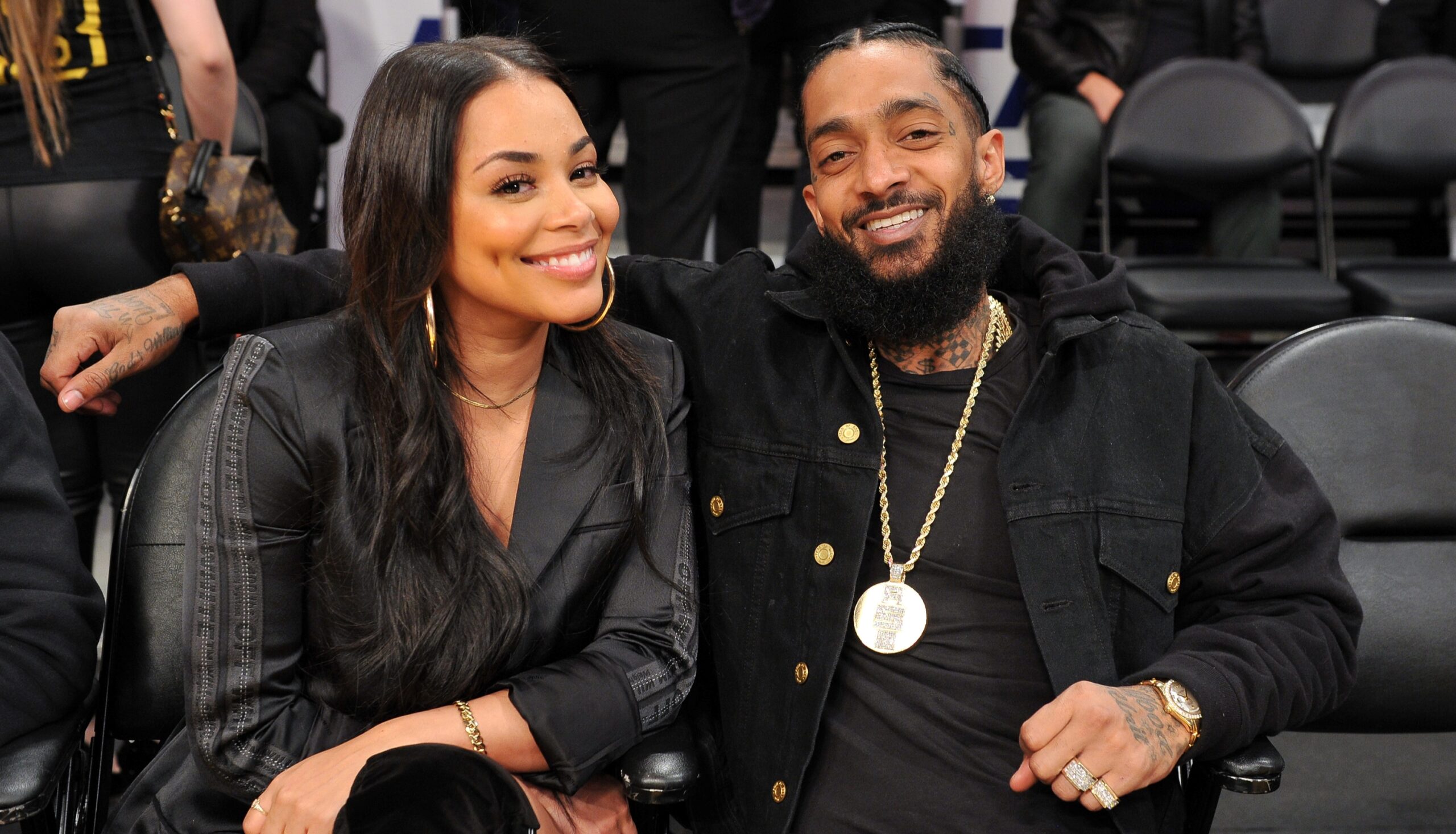
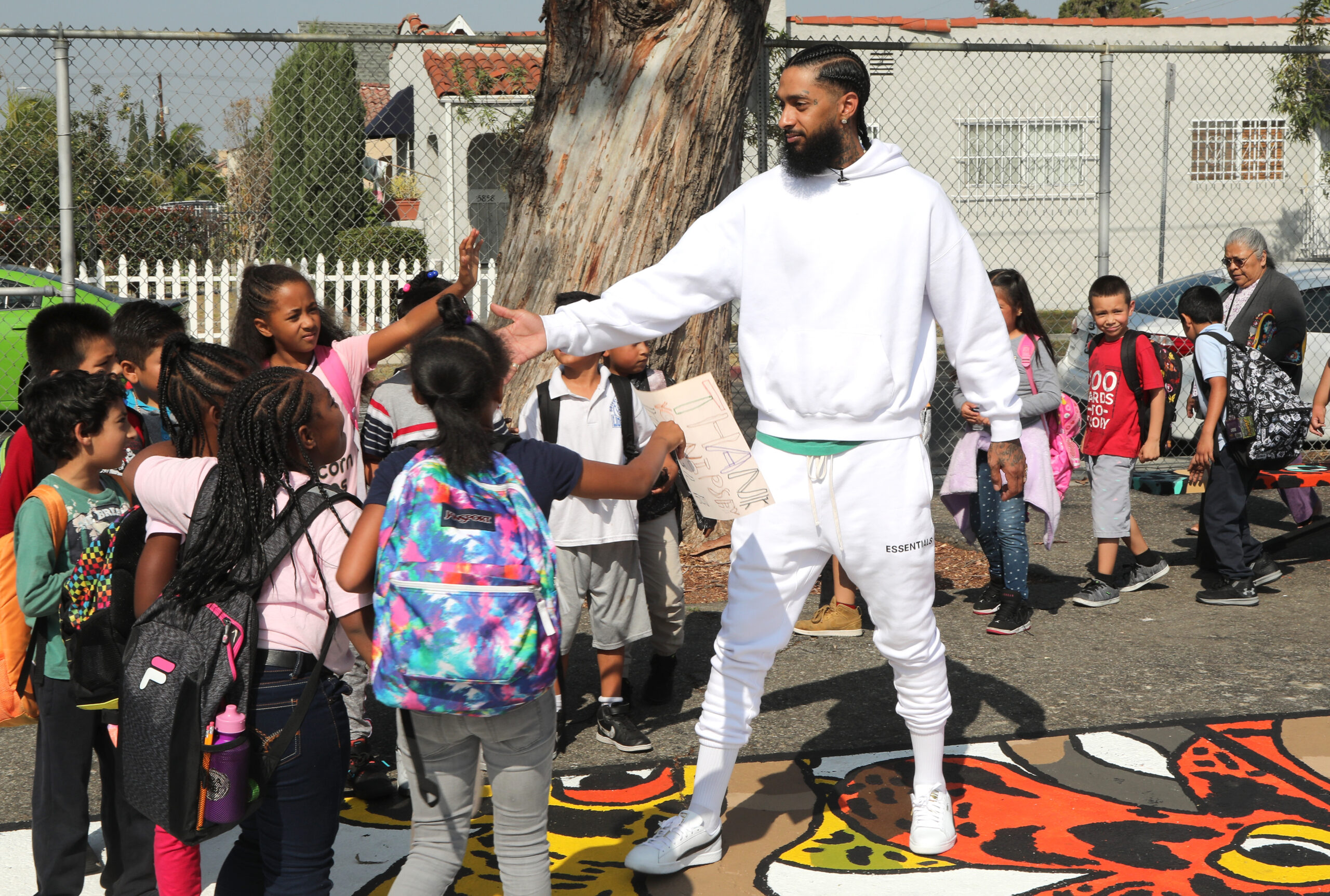
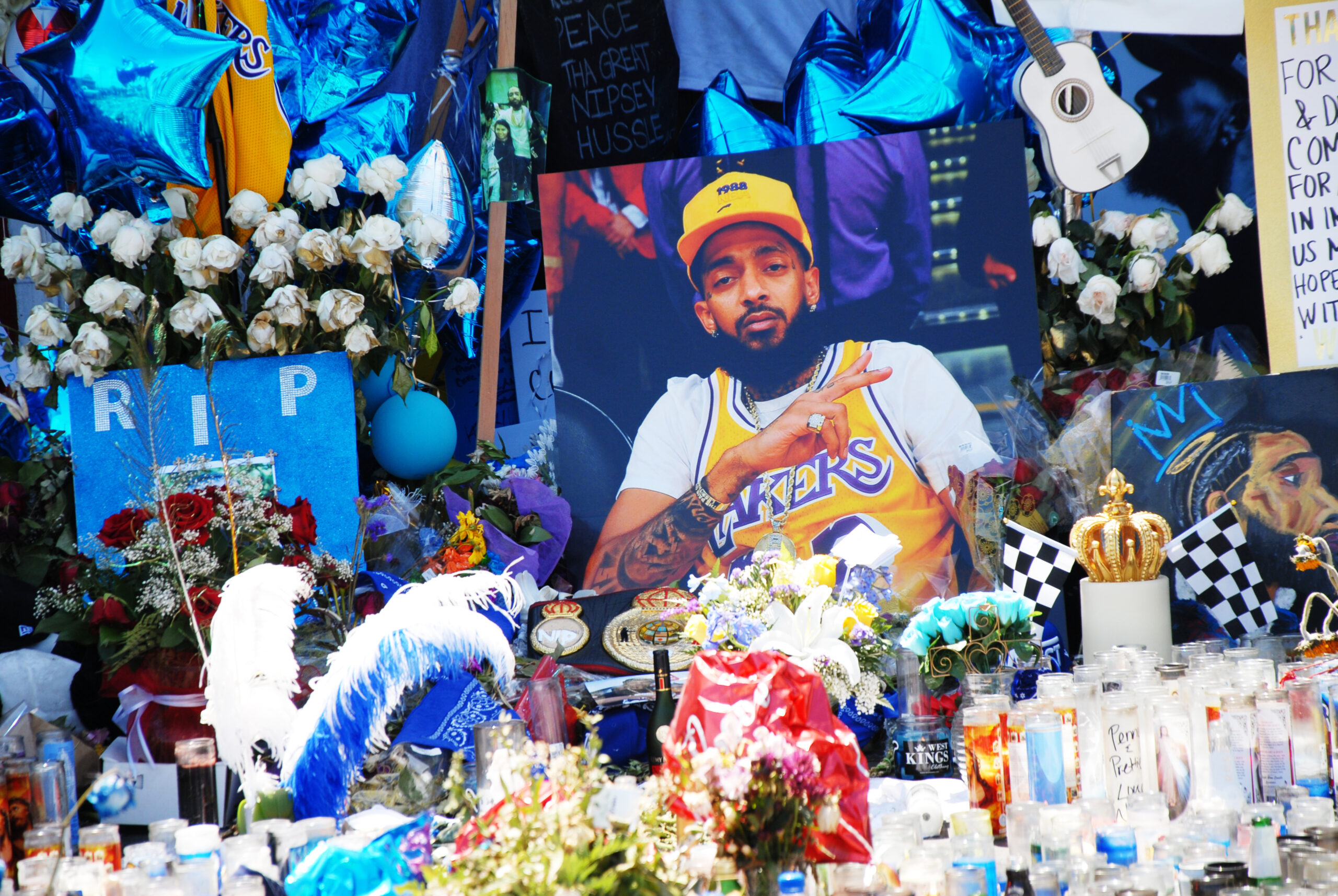
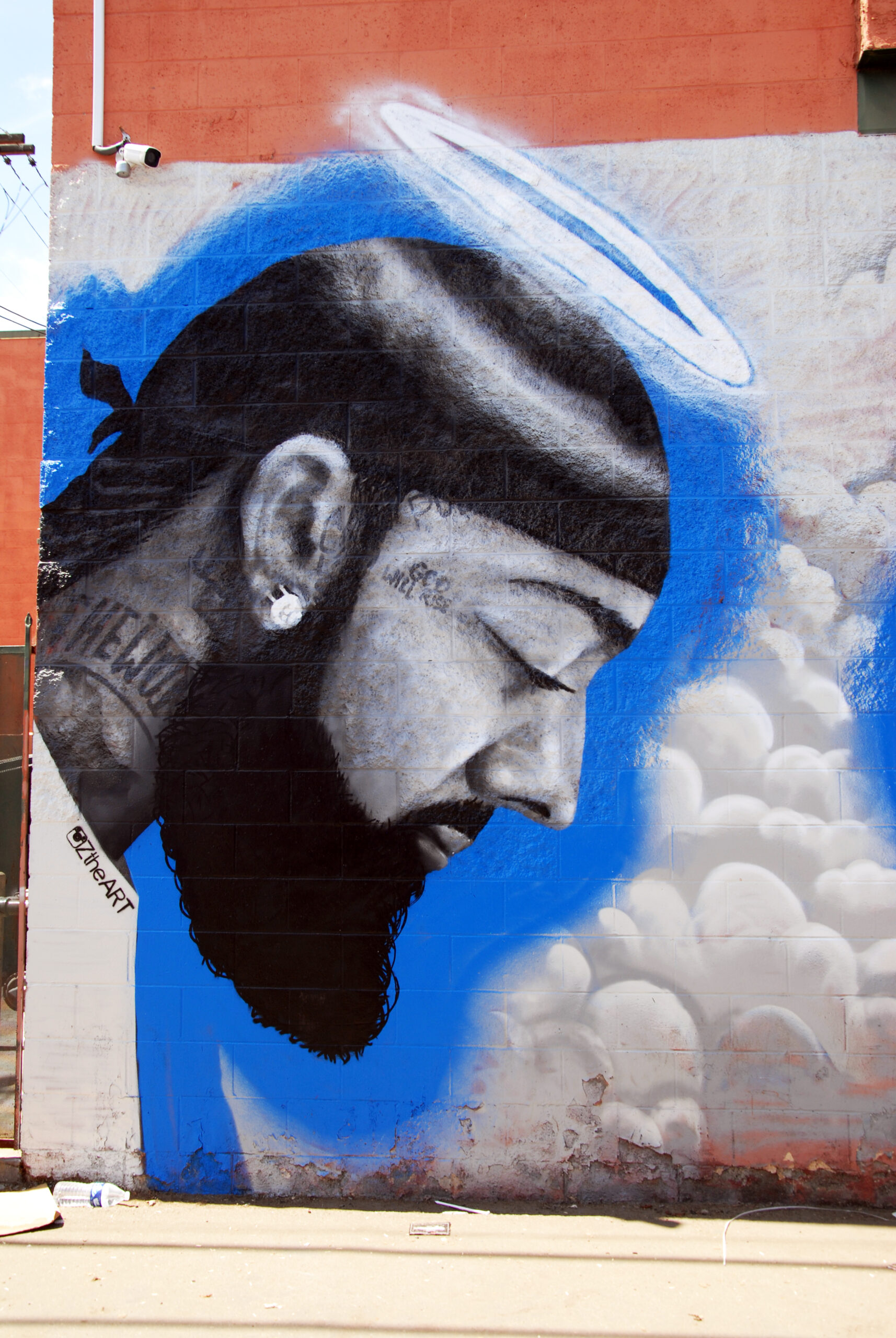
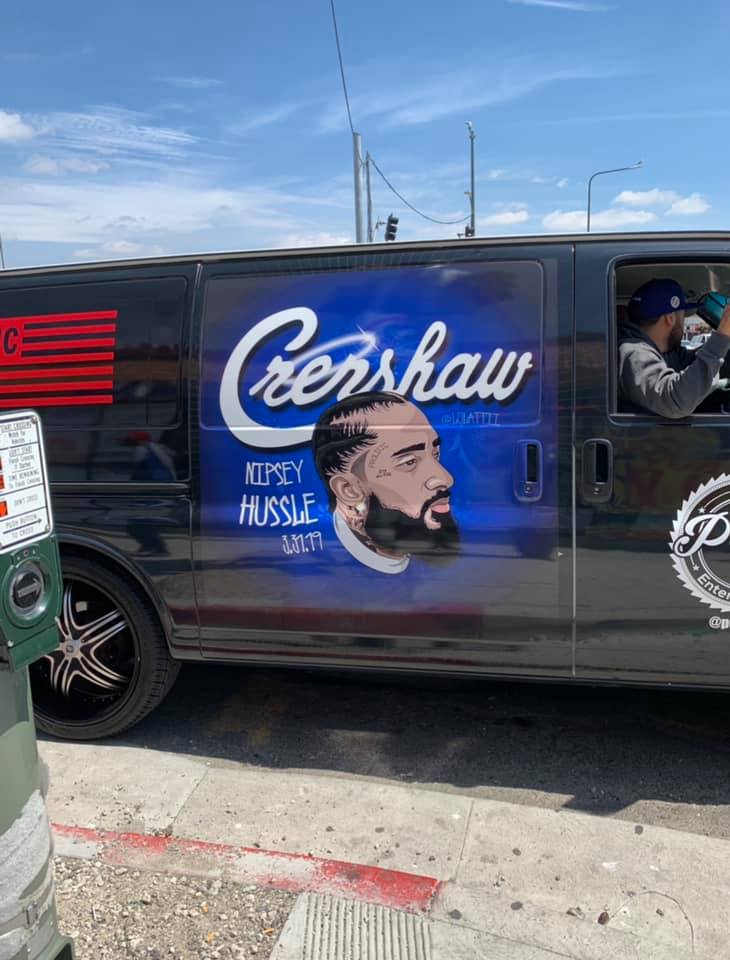
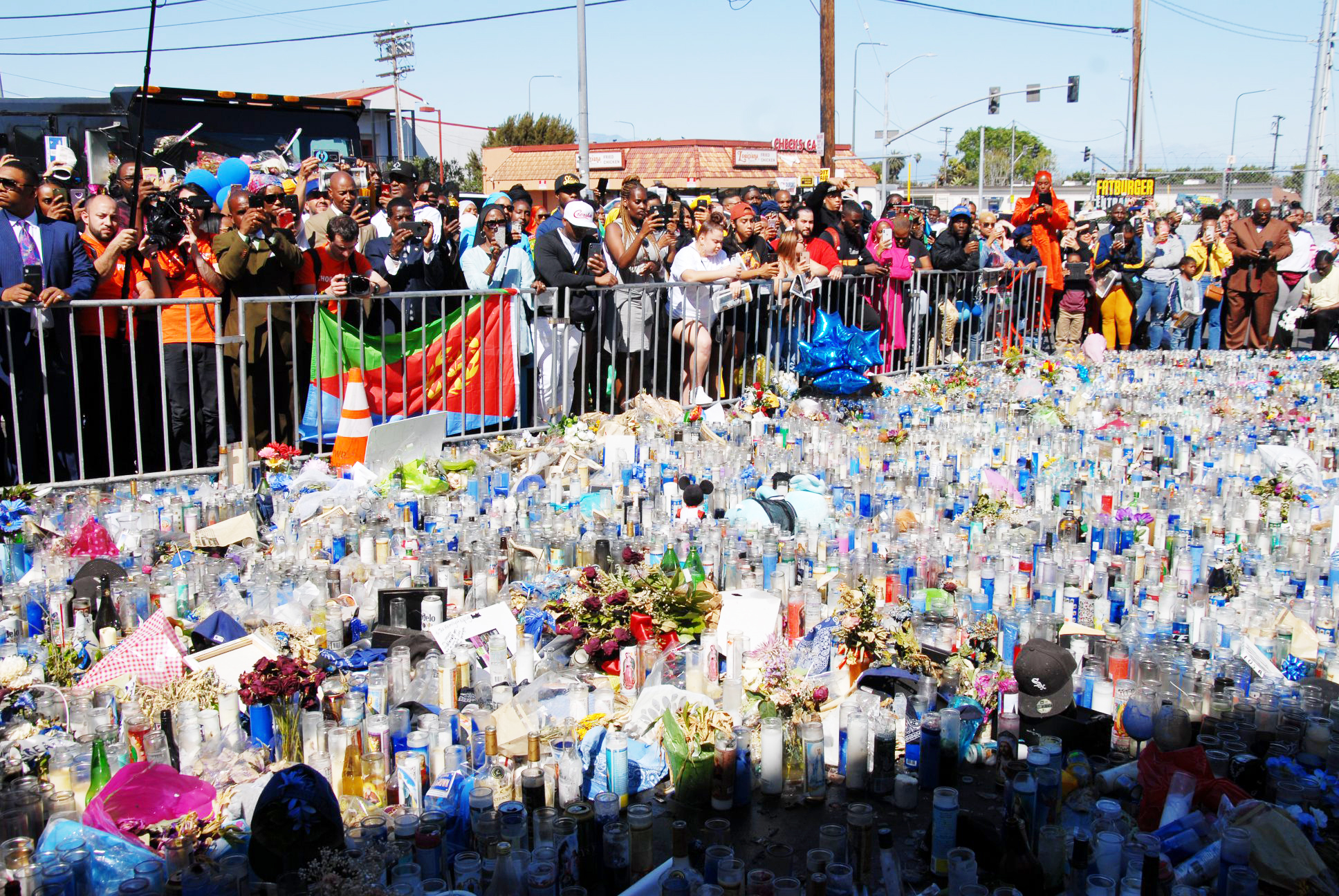
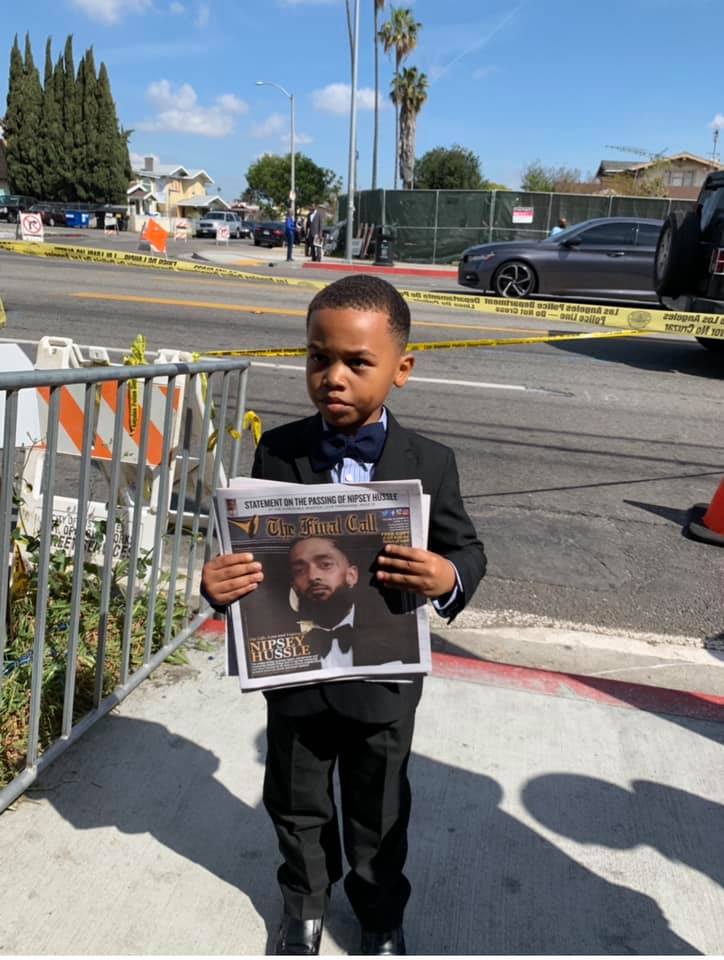
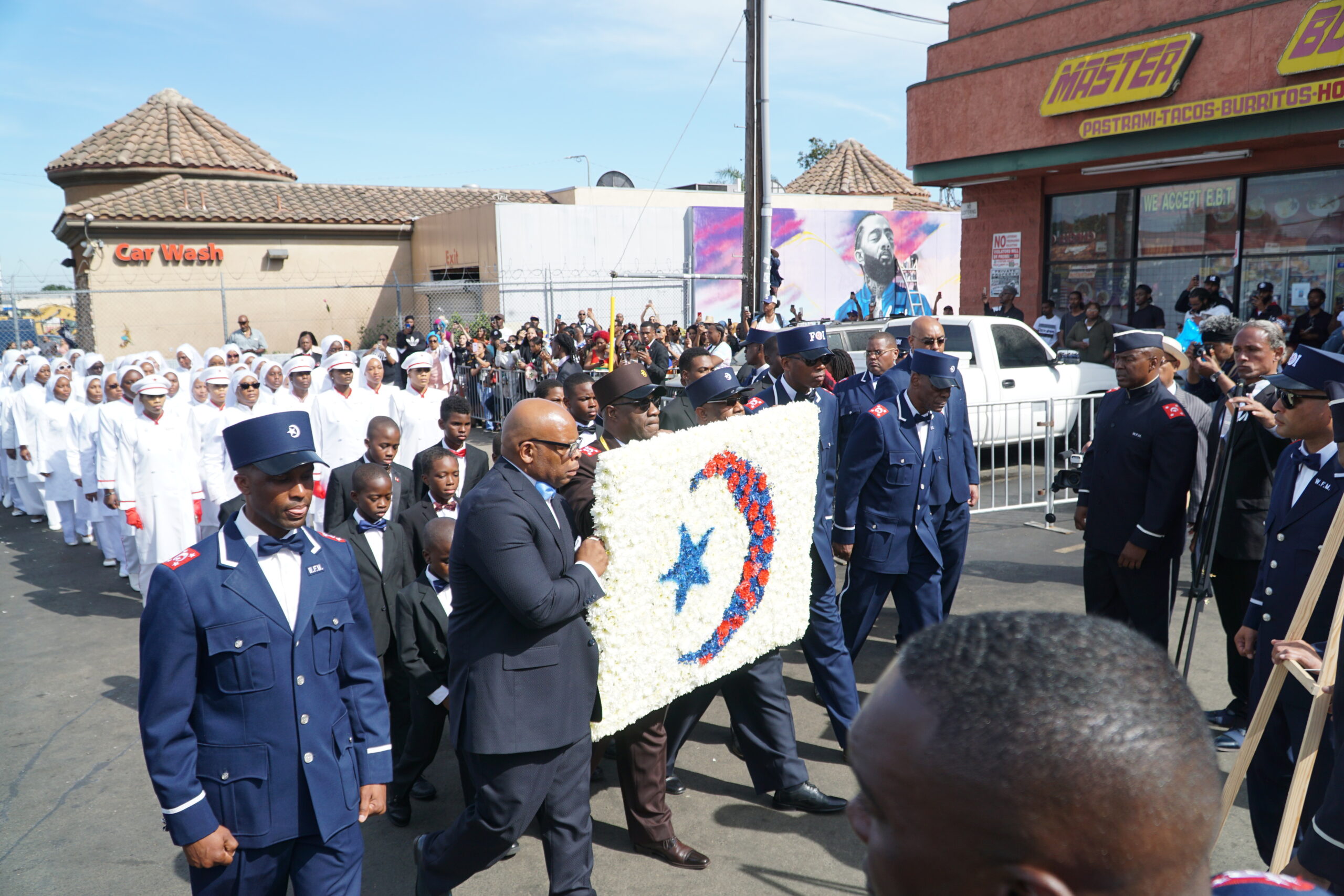
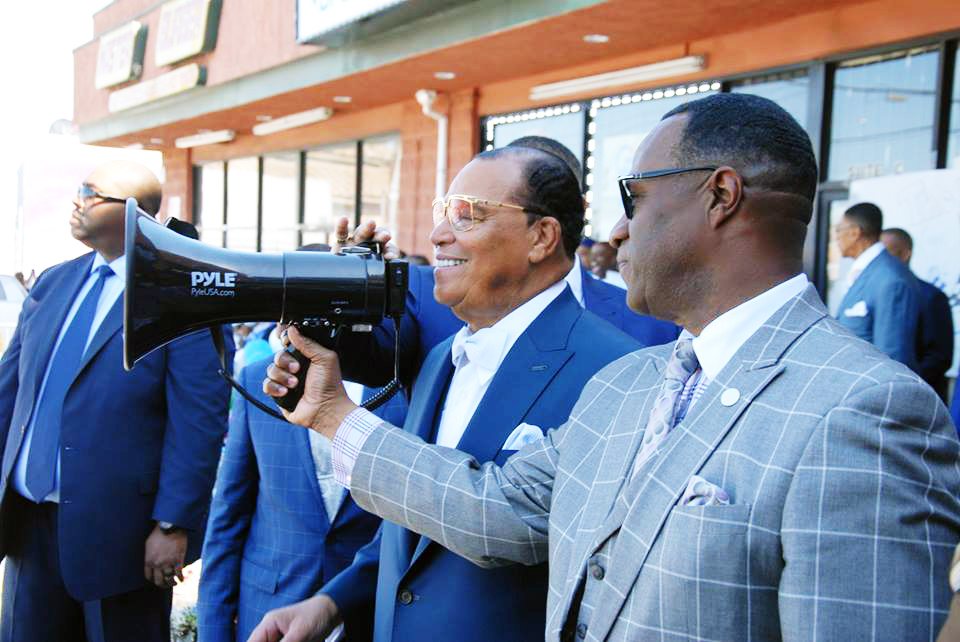
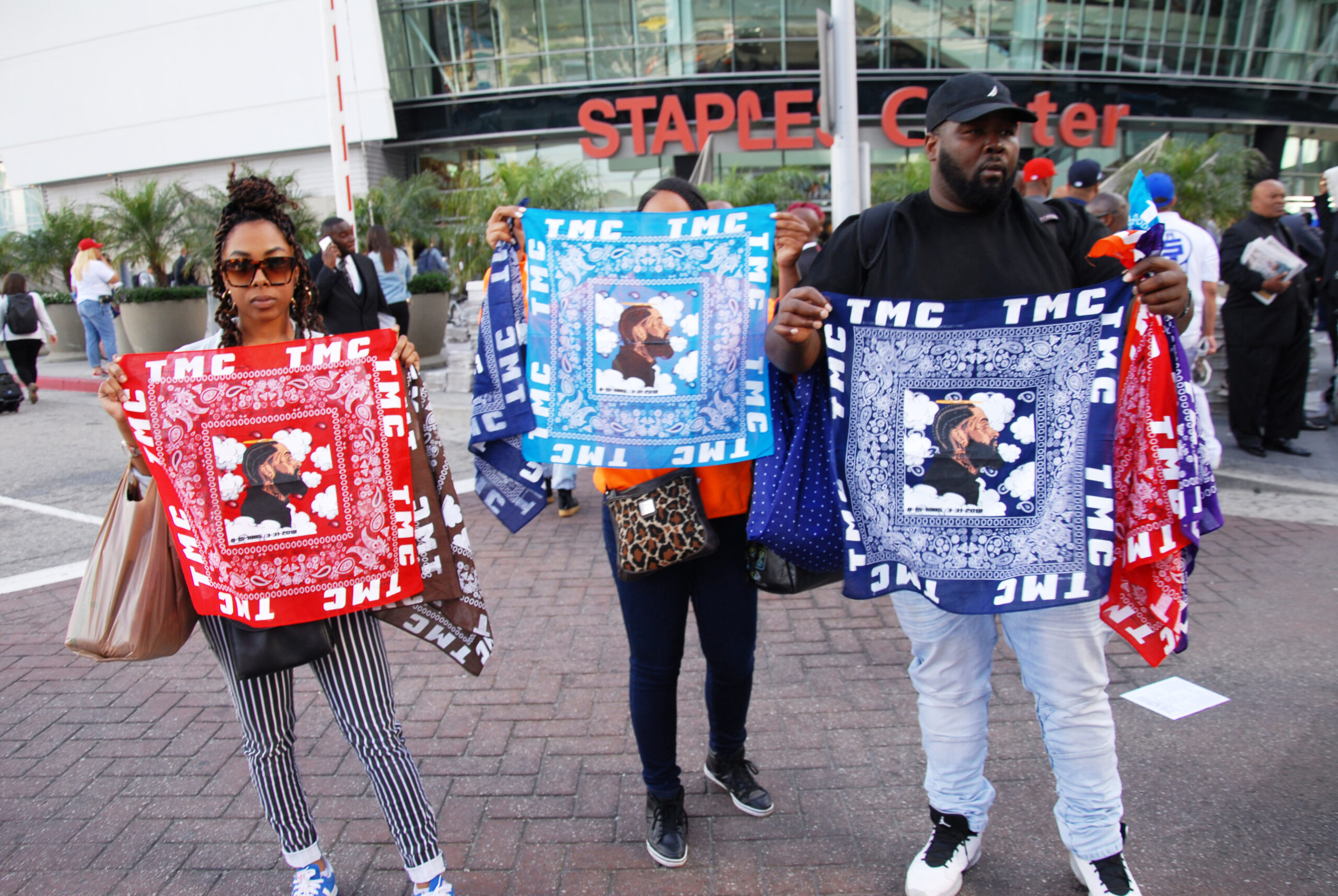
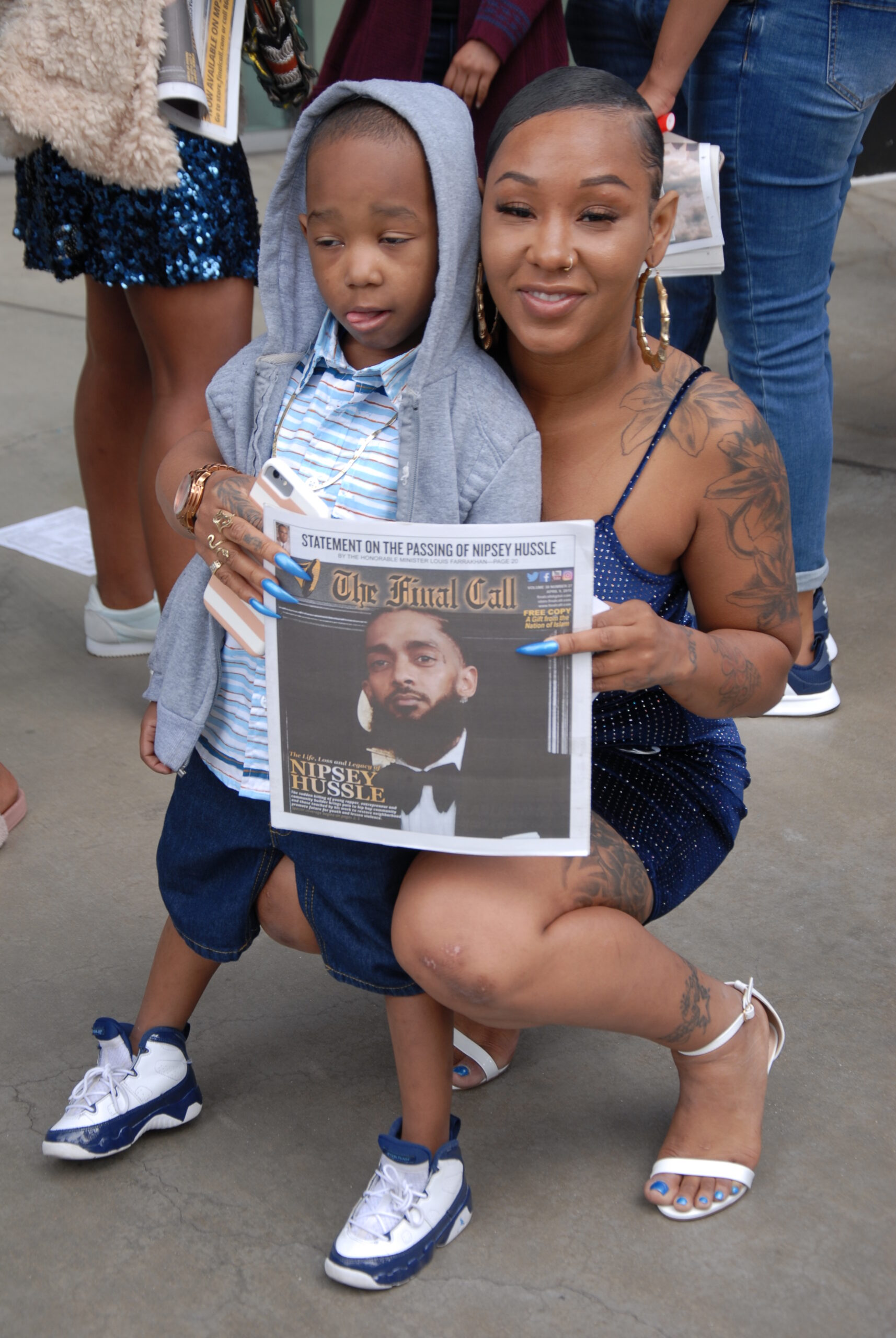
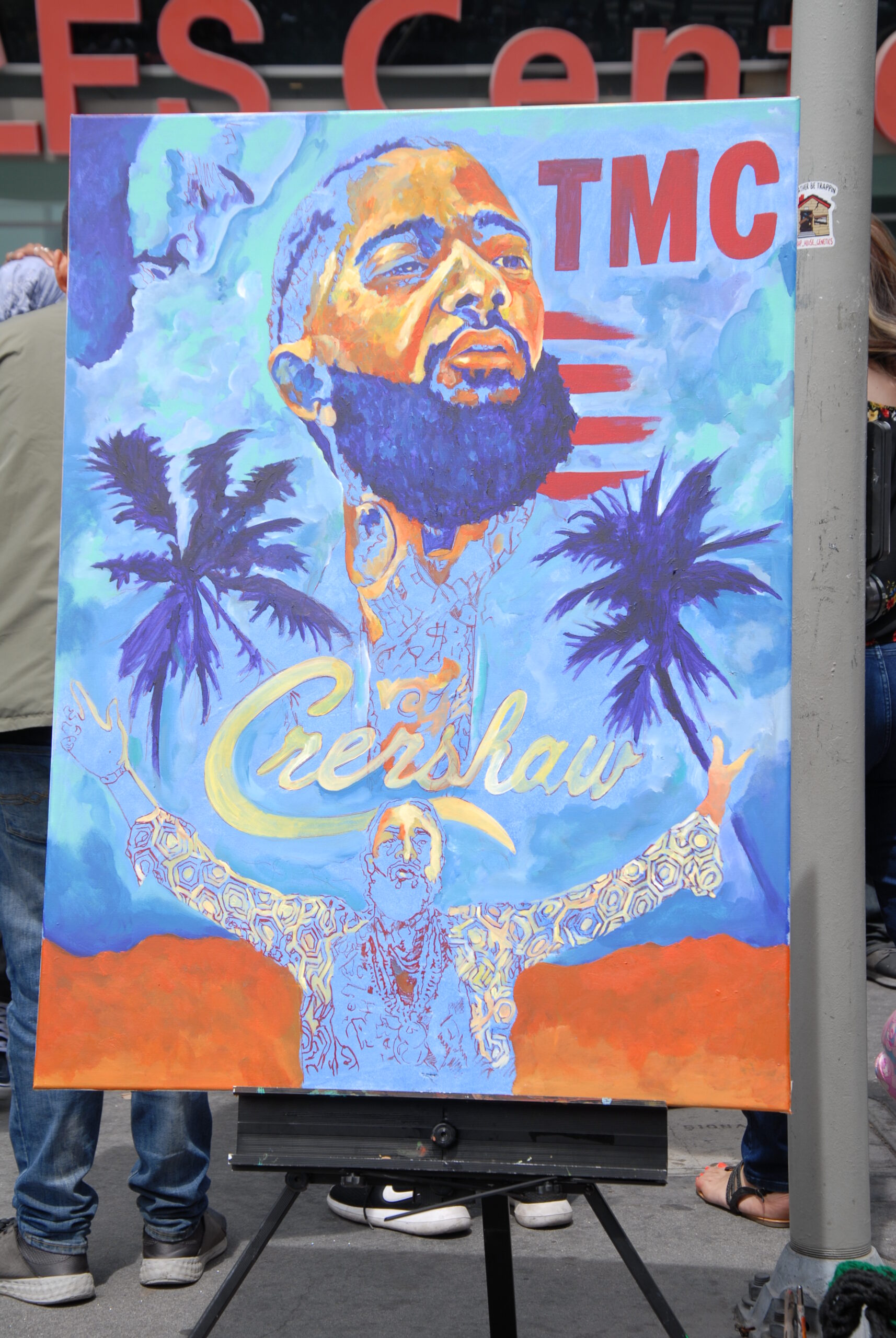
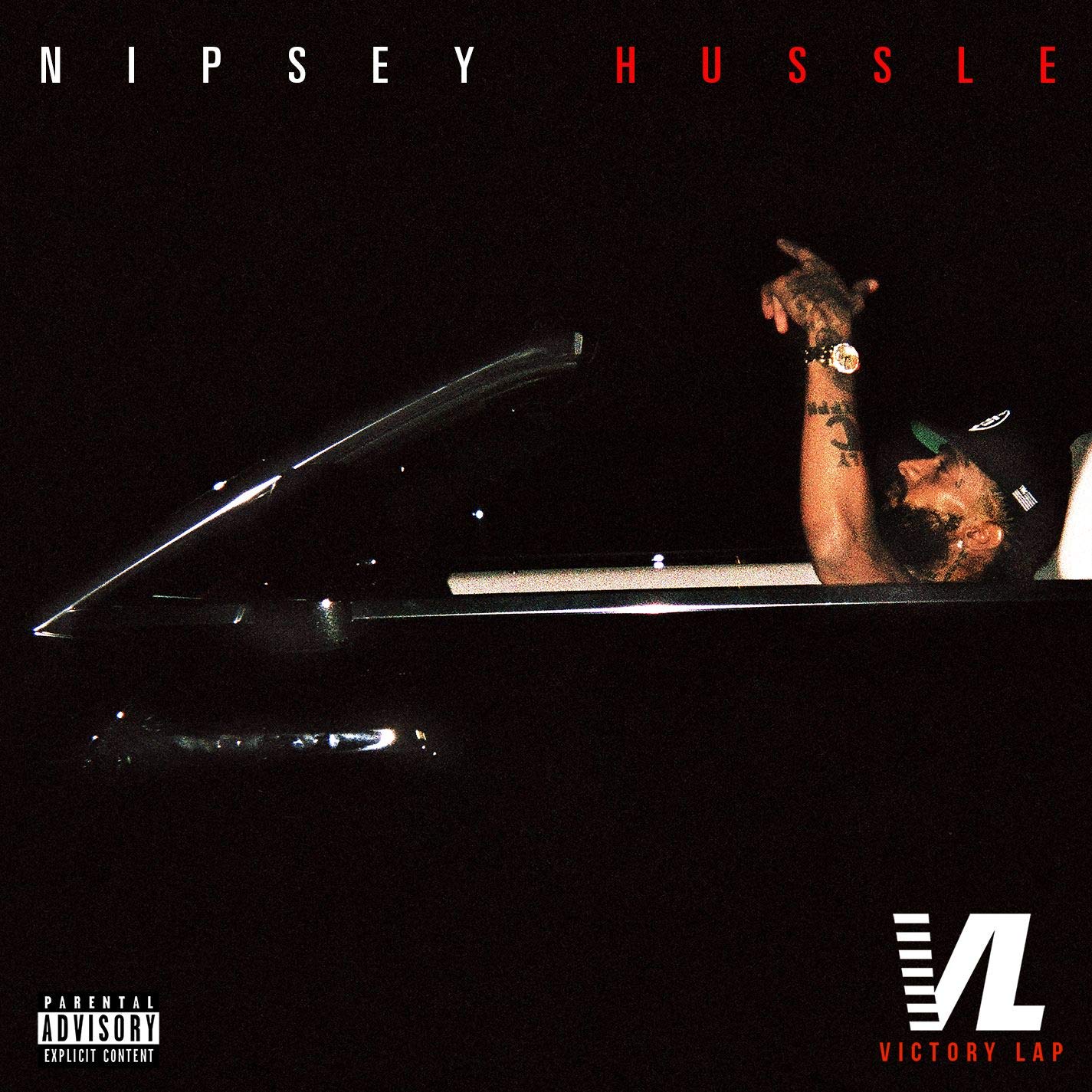
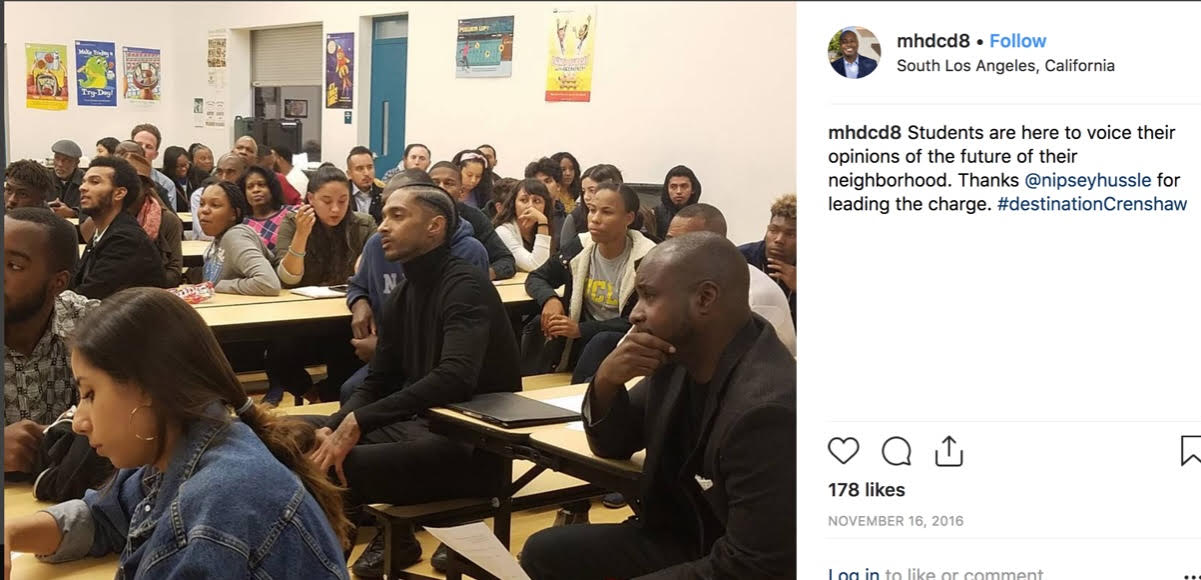
“It has received funding from the city and county, as well as the state of California, and it was recently announced that NBA star DeMar DeRozan would be leading a private fundraising drive. Groundbreaking took place on February 29, 2020, and the project is slated to be completed in fall 2022,” writer Stromberg noted.
The project will include “over 30,000 feet of sustainable landscape design, and it promises to directly invest in local businesses through its DC Thrive program, which ‘focuses on skill-building, technical assistance, operations support, and providing access to public and private capital.’ The construction project itself aims to economically boost the community, with a pledge to hire 70 percent of workers locally.”
“The origins of Destination Crenshaw are rooted in community concerns over the predicted impact of the Metro Crenshaw/LAX light rail line that will run through Leimert Park and Inglewood, currently under construction,” the writer continued.
“Destination Crenshaw was conceived of as ‘a reparative development project’ to counter the feared detrimental effects to the community, both the physical disruption of the street and the potential for gentrification.”
Plans call for millions in grants for youth internships and apprenticeships, joint programming through the African American Art History Initiative of the Getty Research Institute, and through the Getty Conservation Institute, reported hyperallergic.com.
While the project has its advocates, there is still fear it could contribute to gentrification. But Eighth District councilmember Marqueece Harris-Dawson has been engaged in community conversations with the goal of creating and protecting “an unapologetically Black space.”
“In a nod to the late rapper, entrepreneur, and visionary Nipsey Hussle, the “Improvisation” node (at Slauson) will speak to the community’s resourcefulness and capacity to transform adversity into opportunity,” reported another Los Angeles news outlet.
According to late 2021 reports, the trial of Nipsey’s alleged killer, Eric Holder, was pushed back to March 2022. It has not occurred yet.
Since Nipsey’s death, his family has continued his business endeavors. They transformed his former Marathon Clothing store into a makeshift memorial, and they are now opening a second location for the store. Along with the store, Samiel Asghedom, Nipsey’s older brother, said the commercial lot the family purchased will eventually be transformed into a community space offering free music lessons for youth, according to The Guardian. He told the publication his hope is to release new music by Nipsey as part of the soundtrack to a documentary on his brother’s life.
Nipsey’s family has been working to protect his music. In September, they filed a trademark infringement lawsuit against merchandisers for allegedly selling products with the rapper’s name and face. In January, his estate won a restraining order against the merchandisers. They also shut down the selling of Nipsey’s music as NFTS (non-fungible tokens), an emerging form of digital trade and exchange.
The late rapper’s estate is being finalized by his brother Samiel Asghedom and the mother of his son, Lauren London, who he dated for five years. Mr. Asghedom reported his brother’s estate is worth approximately $4 million. Nipsey’s two children will reportedly get $2 million each, according to HipHopDX. Mr. Asghedom was given until October to finalize the estate.
To Los Angeles native Larrance Dopson, Nipsey was like a brother. The Grammy-winning music producer, songwriter and artist described Nipsey as super smart, loyal and humble. He thought about his logic before emotions and read a lot of books, Mr. Dopson told The Final Call. He and Nipsey had been doing music together for a long time.
“We were playing for Snoop and a couple of celebrities as a band growing up. And Nipsey always was selling T-shirts and CDs on Crenshaw and Slauson,” he said.
Mr. Dopson is the CEO of 1500 or Nothin’, a band and collective of musicians “coming together like power rangers.” He and his partners, James Fauntleroy and Twila True, founded 1500 Sound Academy, where they teach topics including culture, production, songwriting, publishing and owning.
Mr. Dopson named the “Victory Lap” album, Nipsey’s debut studio album, as one of his favorites he worked on. More specifically, the song “Dedication” resonated with him, as well as “Come Over” and “Blessings.”
“Nipsey was like the first to actually be able to teach the culture where we can understand it. From how to survive being in the streets to becoming a venture capitalist and learning about crypto and equity and owning your own masters. Stuff like that,” he said. “Most of these artists are in these slave deals, where they took some money in and they got their masters taken away. Nipsey was an advocate for ownership, so I really appreciate that.”
He advises people to listen to every single album and mixtape from beginning to end, to follow Nipsey’s journey, as he left “the clues of how to get through it.”
Don Enoch Muhammad, an aide to the Honorable Minister Louis Farrakhan of the Nation of Islam, encountered Nipsey for the first time during a trip to Los Angeles with the Minister.
The Game, with the help of Nation of Islam Western Regional Student Minister Abdul Malik Sayyid Muhammad, organized an anti-violence rally at the same time Minister Farrakhan was in town. Several artists and entertainers were in attendance, including Nipsey Hussle.
By the time Don Enoch Muhammad arrived, the rally was over, but Nipsey was still out there.
“I remember the introduction. He was a very serious brother. He didn’t smile. He was firm. He was intentional. He looked me in my face, and it was every bit of five to 10 seconds of an introduction, but it was impactful,” Mr. Muhammad said.
Nipsey’s death three years ago affected him, as he started to learn more about the rapper and his music.
“It was inspirational, his music. Even the level of production. It’s great music. I learned a lot. He touched me. He touched my heart, my soul, my spirit,” said Mr. Muhammad.
He described the rapper’s life as a “template of how to build not only your music career, but how to diversify and to put your money into real estate and to grow your real estate.”
Now, he said, others like Rick Ross, T.I., 2 Chainz and Killer Mike are heavy into real estate acquisition.
“When Rick Ross said buy back the hood, Nipsey is in that. That’s what Nipsey was doing, buying back the hood. That’s what Young Dolph was doing,” Mr. Muhammad noted.
Young Dolph was a Memphis-based rapper who was shot and killed in November. His autopsy report recently ruled his 2021 death a homicide, with multiple gunshot wounds to his head, neck and torso.
Mr. Muhammad described violence taking the lives of young rap artists as being “at a pandemic level.”
He said the solution is to stay prayerful but proactive in stemming the violence between young people.
“We have to put ourselves, the F.O.I. (Fruit of Islam), in between the violence of brother to brother so that we can attempt to make a difference and to stem the violence. We have to try harder. We have to work harder,” he said.
Minister Paul Scott, founder of the Durham, N.C.-based Black Messiah Movement, argued the violence in the music industry is a reflection of the streets.
“Rappers have a great responsibility to be that voice that’s going to end the destruction of our community. They have that responsibility to end the genocide, use their voice, use their influence, to end the genocide against Black people,” he said. “That’s the sacred responsibility of anybody, not only entertainers, but anybody with a voice.”
He noted the greatest fear in America is not rappers talking about guns, but rappers organizing politically.
Nipsey Hussle was shot and killed on March 31, 2019, near his Marathon clothing store in South Los Angeles, California.
And there are the troubling revelations of the extent to which the Los Angeles police department sought to destroy the entrepreneur. His business was heavily targeted by LAPD.
“It seems to be that’s the way that Nipsey Hussle was headed, to try to organize economically and politically. And I think that anybody who tries to organize politically in this country, any Black man who tries to organize politically, economically, is a threat,” he said. “And it’s sad that he didn’t get to live that out, but that seems to be the direction he was headed.”
Min. Scott said it will take an army of Nipsey Hussles to defeat the enemy against Black people and that rap and hip-hop artists should expand into the direction of empowerment.
“These are serious times, and those of us who are still fortunate enough to be on this planet in 2022, we have a sacred responsibility to fight to make things better. Swan Song. Our Swan Song,” he continued, referencing Minister Farrakhan’s Saviours’ Day 2022 address. During the address Feb. 27, the Minister spoke to rappers and entertainers, and he called upon the listening audience to use their gifts, skills and talents for the betterment of the Black community.
As producer and host of WRFG 89.3 FM radio station in Atlanta, Dominique Easley would play many of Nipsey’s songs before his passing. But, she said, it wasn’t until his passing that she sat and went through everything he released.
Listening to his music added to her frustration, as she started to understand how big of a loss Nipsey was. The radio host, known as MsDia, said she applied a lot of what Nipsey gave to her life.
“Whenever I’m tired and I just want to kind of give up, I’m bumping ‘Dedication.’ Or when I’m in my car, I think the most-played song I play is ‘Right Hand 2 God,’ ” she said.
In describing Nipsey’s legacy, she explained, “It’s about being solid. It’s about being dedicated. It’s about being committed. It’s about seeing a void and filling it. It’s about community relations.”
In order to keep Nipsey’s legacy alive, Ms. Easley believes Black people should focus on ownership and community.
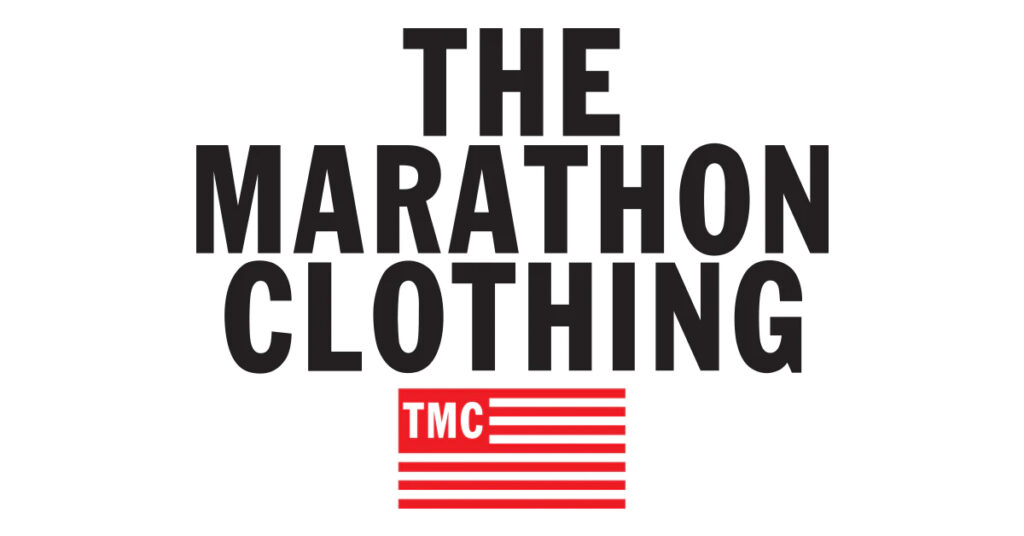
“If you have a product, be serious about your product. Put a price tag on your product that reflects the time, the energy, the passion and the creativity and all that stuff that you put into that, just like he did. Don’t be ashamed to be proud of what you create and sell it for what you think it’s worth,” she said.
In terms of ownership, “Get us some property. Get us some land,” she added.
The most important lesson and example she took from Nipsey’s death is the importance for the Black community to acknowledge self-inflicted pain. It makes her sick to her stomach to think the person who killed Nipsey was someone who looked like him, she said.
“We have got to be real with ourselves, because at the end of the day, we can sit and we can play around and act like this stuff is not affecting us, but it truly is,” she said.
She linked the lack of proper education and lack of knowledge of self to the killings.
“When it comes to our young people and our young men and stuff, if they learned who they were, if they sat and really had to listen, watch the Malcolm videos and watch a Dr. Francis Cress Welsing speak about Blackness and stuff, ain’t no way you can tell me that they wouldn’t reconsider killing each other,” she said.
Don Enoch Muhammad said Nipsey’s life should be an example.
“Nipsey is someone that we should look up to and we should look to. What Nipsey was doing before his untimely demise should be mimicked and replicated in our respective communities,” he said. “Nipsey’s legacy continues to live. Nipsey isn’t dead. Nipsey’s work, Nipsey’s music, Nipsey’s contribution, Nipsey’s real estate continues.”
His words hearken back to Minister Farrakhan’s message at Nipsey’s homegoing service.
“I close with this verse from the Qur’an: ‘Speak not of those who die or are slain in the way of God as dead. They are alive but you understand not.’ His body is dead, but the mind of Ermias Asghedom and the spirit of Nipsey is alive. Like a star in the universe that comes out of a black hole. And a star dies but the light of that star traveling 196,000 miles a second is still coming from space to reach us, though the star that produced that light is dead,” he said.
“The physical life of the brother is gone, but the spiritual life of Nipsey Hussle, Ermias Asghedom, lives on and on and on and up and up and up and we will fly away with him to a brighter tomorrow.”












